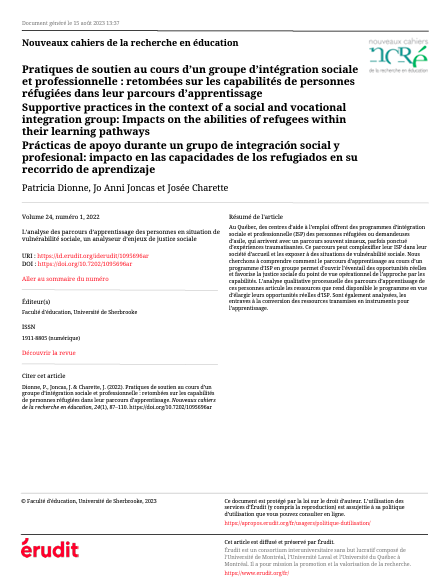Supportive practices in the context of a social and vocational integration group: Impacts on the abilities of refugees within their learning pathways
Abstract In Quebec, employment assistance centres offer social and professional integration (SPI) programs for refugees and asylum seekers, whose backgrounds are often marked by a winding path that may include traumatic experiences. This path can complicate integration into their host society and expose them to situations of social vulnerability. This article seeks to understand how a learning pathway in a group-based SPI program can open up a range of real opportunities and promote social justice from the standpoint of a capability approach. Our processual qualitative analysis of the learning pathways of these individuals addresses the resources that the program makes available in order to expand participants’ actual SPI opportunities. We also analyze barriers to the conversion of provided resources into instruments for learning. Keywords refugees, social and professional integration, capability approach, social justice, learning pathway, group
Members and SHERPA Teams

Josée Charette
Professor, Département d'éducation et formation spécialisées, UQAM

